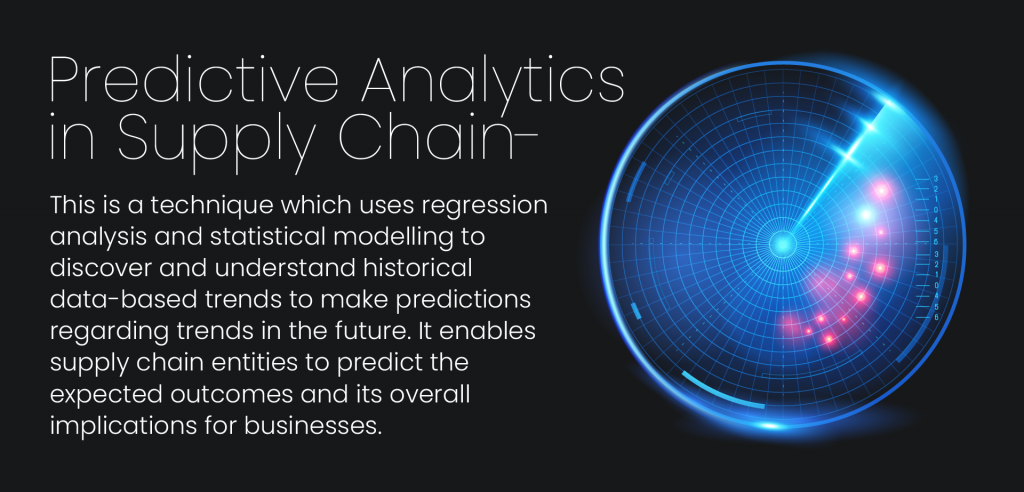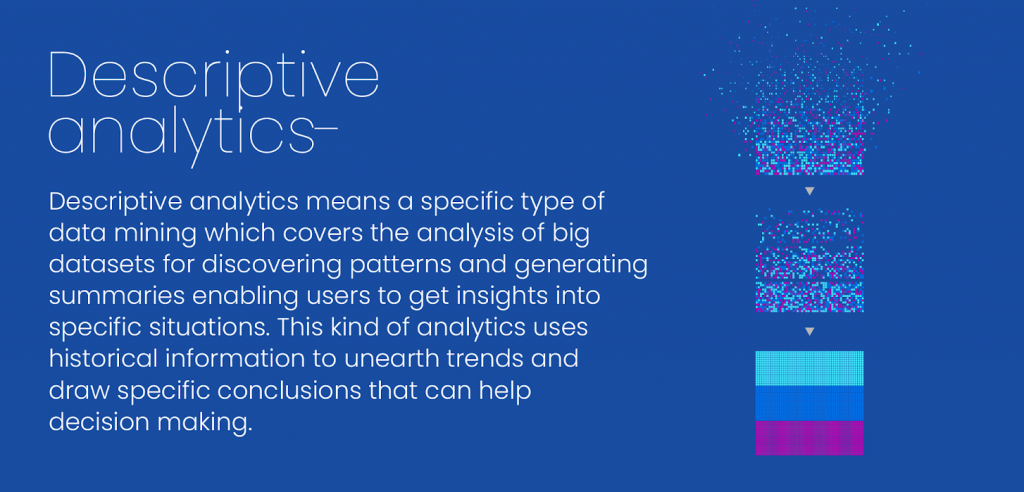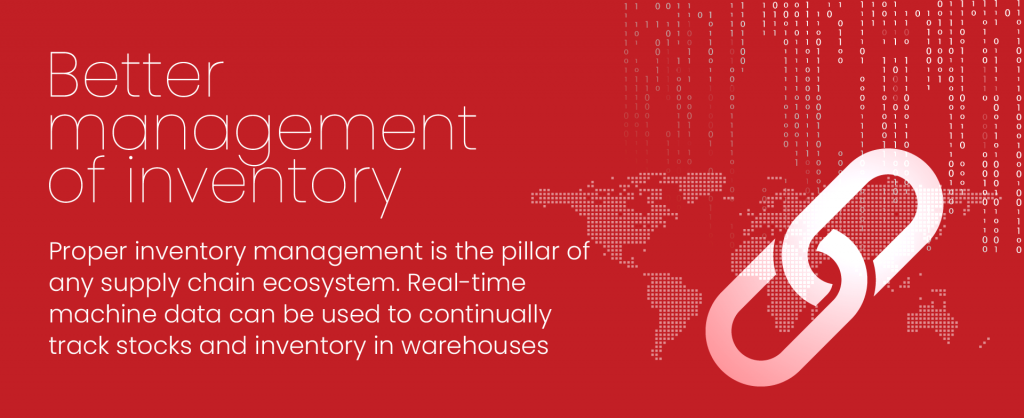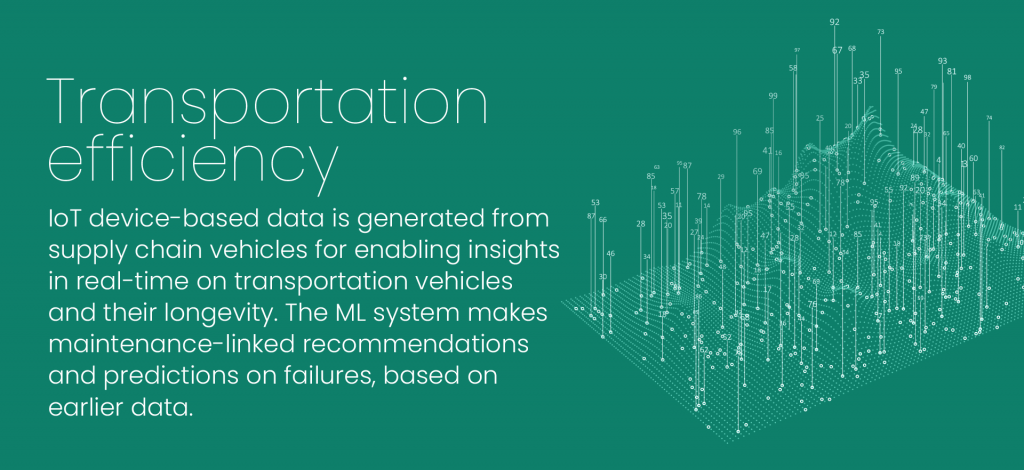
Supply chain management is fast being transformed with technologies like supply chain analytics, AI, and machine learning in supply chain.
A study by McKinsey has found how implementing artificial intelligence in supply chain management has enable major improvements.
Those adopting such technologies have already seen logistics costs going down by 15%, along with a reduction of 35% in their inventory levels, in tandem with service levels going up by 65%.
Hence, the future potential of AI, ML, and analytics driven supply chain management is massive, to say the least.
Here are some ways in which analytics enhances supply chain management greatly. These include the following:

This covers the implementation of ERP and CRM systems along with SRM software and business intelligence solutions. Performance can be analysed at a broader level while analytics also helps predict and minimize future risks and any negative effects on the channels for distribution.



ML is also used for identifying key factors in supply chain and other logistic data with constraint-based modelling and algorithms. This helps employees take better decision on stocking, while offering insights to enhance inventory management.
AI does make a difference in tandem with ML and analytics, helping companies save costs and enhance revenues through identifying better procurement and shipping rates, pinpointing supply chain profit procedure changes, and managing transportation contracts. A centralized database will offer visibility into every aspect of the entire supply chain for enabling better decision-making.
These technologies are also enabling the identification of vital partners and suppliers, enabling companies to standardize options at lower costs while predicting all performance indicators based on compliance factors.
Most big enterprises will switch to smart robots for warehouse operations in the next few years, as per industry expectations. There will also be a need for more specialized and integrated SCM-oriented AI and other tools.
Analytics will drive decision-making throughout every stage of the supply chain management process, while non-implementation of the same will only lead to companies missing the bus in terms of revenue growth, cost reductions, better tracking, and higher efficiency across the board.
AI is enabling easier tracking and real-time insights for companies, along with enabling better inventory management, demand forecasts, stocking, sourcing, and several other benefits.
Some of the main considerations include features like real-time visibility into every aspect of the supply chain management process, integration with existing systems, easy accessibility, user-friendly interface, powerful analytics and forecasting features, and more.
Some of the key challenges include poor data quality or an unorganized data gathering process, along with issues relating to technological integration and employee understanding.
Companies can easily leverage data analytics for identifying future risks and combating them accordingly. They can do this by predicting/forecasting future demand, user needs, patterns, and market fluctuations.